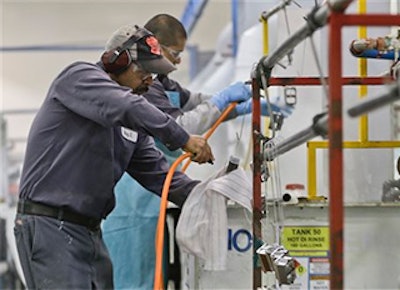
A new method developed by Oregon State University engineers could offer a comprehensive way for companies to assess their business practices and environmental initiatives.
The system, which researchers named the “sustainable development methodology,” utilized a six-step process that incorporated unit process modeling and life-cycle inventory.
The result could enable engineers to consider all ramifications of their design decisions before production begins, according to the analysis published in the Journal of Cleaner Production.
Read more: How leading manufacturers balance flexibility and quality.
"When you make decisions about what is best, you may make value judgments about what aspect of sustainability is most important to you,” said OSU engineering professor Karl Haapala. “But the modeling results have the potential to assist designers in performing those evaluations and in understanding the trade-offs alongside other aspects of the manufacturing process.”
In the study, funded with help from Boeing and the Oregon Metals Initiative, researchers offered three hypothetical alternatives for the production of a common automotive and aircraft part.
The methodology, among other issues, examined energy consumption, water use, effluent discharge, employee safety and operating costs. Ultimately, mathematical modeling found one of the three designs to be the most sustainable.
Engineers said that current options to consider all aspects of sustainability are nearly non-existent.
"With current tools you can analyze various aspects of an operation one at a time, like the advantages of different materials, transportation modes, energy used, or other factors," Haapala said. "It’s much more difficult to consider all of them simultaneously."






















